The Best Way to Make Over Easy Eggs
Chef notes
Sometimes doing the simplest recipe can feel like the most complicated. An egg cooked a bit on both sides with a runny yolk is one of the most basic breakfast delights, but pulling it off correctly can feel like a small feat of ingredients, timing and confidence.
But, not to worry: Armed with the right equipment and methodology, you can have perfect eggs over easy every single time.
Preparation
What does 'over easy' mean?
Eggs over easy are the perfect blend of everything that makes an egg great — you can have a bit of browning, a bit of runny yolk, and no undercooked whites to put people off. Over easy refers to an egg that has been flipped over, but whose yolk has not been fully cooked. Unlike sunny-side-up eggs — which might be more aesthetically pleasing but runs the risk of runny whites — over-easy eggs are cooked just enough. But you still have that glorious yolk to dip a piece of bread into when it's ready.
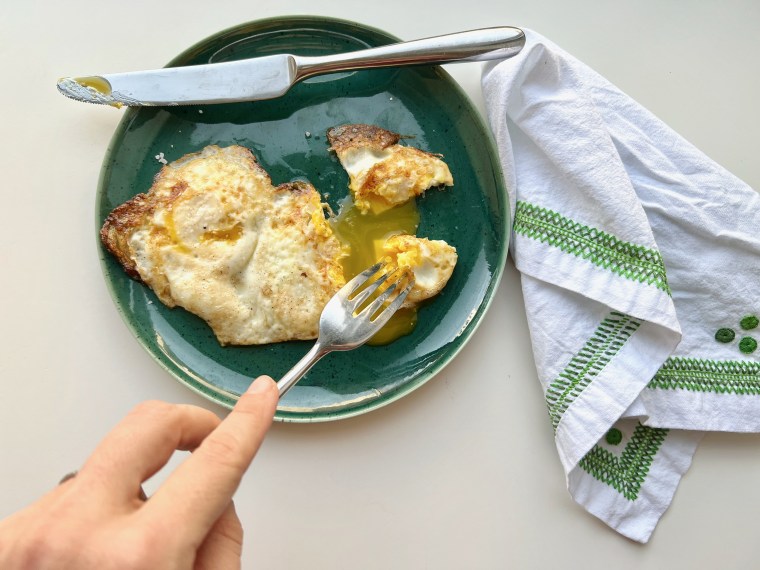
Equipment you'll need
Eggs over easy can go wrong very quickly with the wrong pan. The key tenet of eggs over easy relies on being able to flip the egg without breaking the yolk — so if your pan sticks or your spatula doesn't allow for seamless flipping, the whole concept gets ruined.
The good news is that the perfect equipment is probably right in front of you. A nonstick or cast-iron pan works best. And a large spatula, like a fish spatula or other flat but wide spatula, is all you'll need to get perfect eggs.
You want to make sure you've got your pan heated up to the right temperature. If it's too cold or too hot, you might miss out on achieving that perfect level of runniness on your yolk. You want your pan on a medium-high heat with at least a few minutes to heat up the pan. A good way to know if the pan is hot enough is if the butter melts quickly but doesn't burn when you put it in the pan. Once that happens, you're ready to go.
Ingredients you'll need
You can't really go wrong with any ingredient that helps keep the egg from sticking, but butter is certainly the simplest and the most flavorful. Its nutty taste and slick texture makes it the perfect companion for eggs. But if you'd rather do without the butter, you can use any oil — just make sure to use a healthy amount. Over-easy eggs rely on easy, seamless flipping, so you don't want to skimp on the oil.
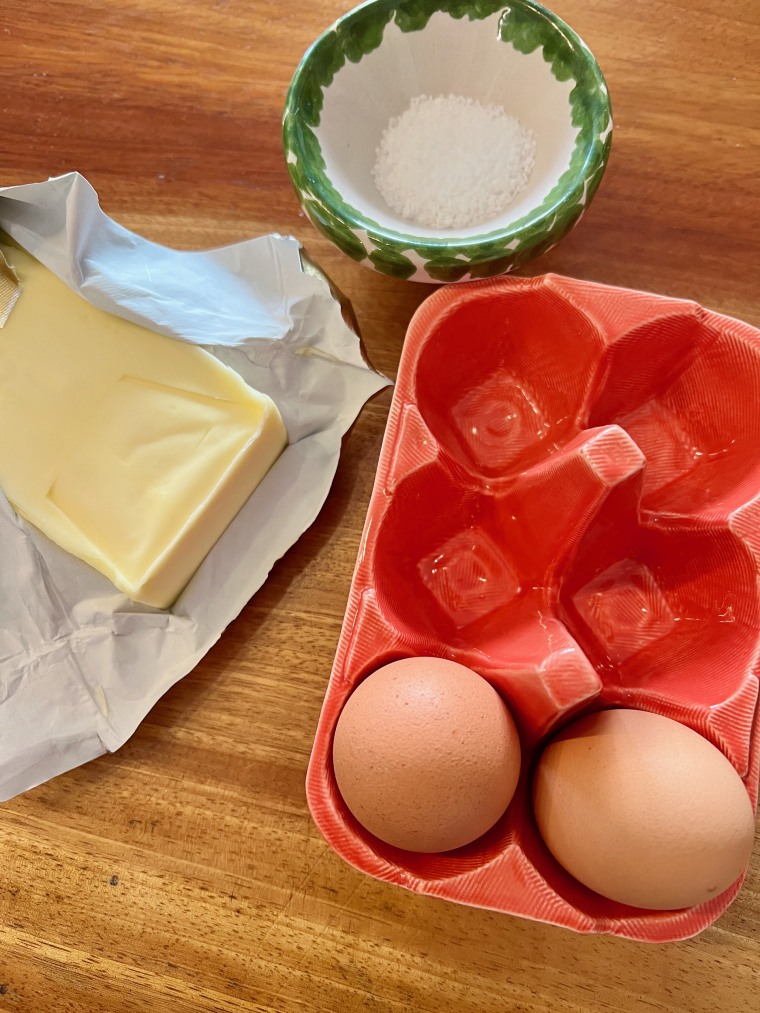
Salt is an imperative addition and then you can add more seasonings as needed. Black pepper is a classic but other spices and herbs — for example, crushed red pepper, za'atar or sumac — can easily be added, just make sure to add once you flip so the bottom doesn't burn.
Timing is key
There is no exact, one-size-fits-all timing for over-easy eggs because every pan and egg is a little different. In general, you want to cook for 1 to 3 minutes on one side and then flip for around 30 seconds. But the true key is in the visuals: Let the egg cook until the whites are almost set but still have a bit of opaqueness on top. Then flip and only let it cook just enough to finish the whites.
And, as with anything, practice makes perfect!
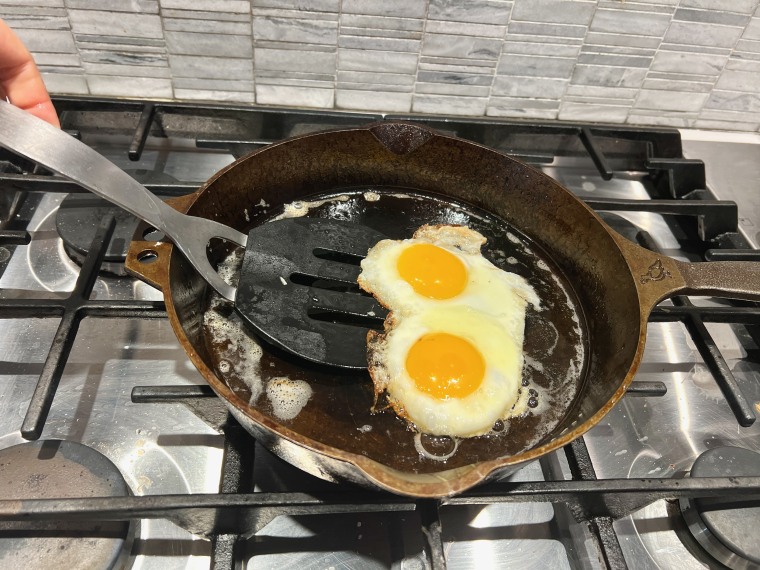
How to cook over-easy eggs
Place a cast iron or nonstick frying pan over medium-high heat. Once the pan is hot, add the butter and allow it to melt. Swirl the butter around so it is fully coating the pan. Add the eggs, being careful to not break the yolk. Season with a dash of salt.
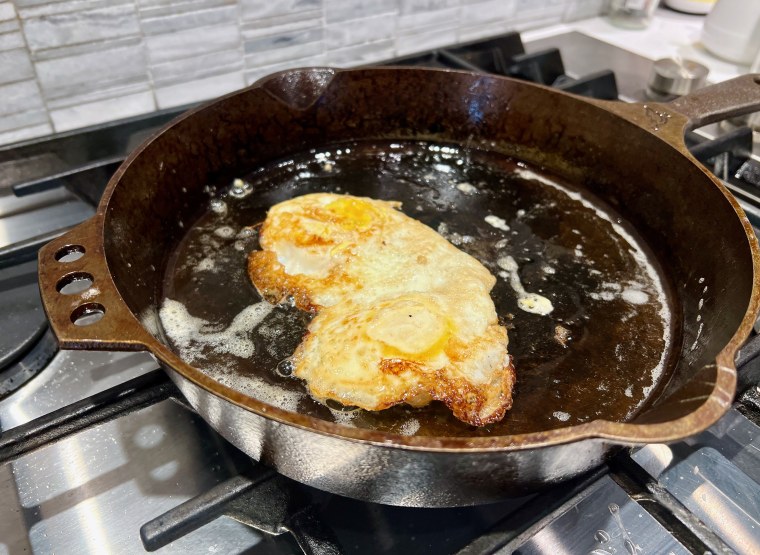
Cook for 1 to 3 minutes or until the whites are almost set but remain a bit opaque on top. Using a large flat spatula, gently slide the spatula underneath the eggs and carefully flip. If you are worried about being able to do it you can always separate the eggs with the spatula and then flip them one at a time. Cook for an additional 30 seconds and then put the eggs onto a plate. Eat hot with any additional seasonings such as black pepper or hot sauce.
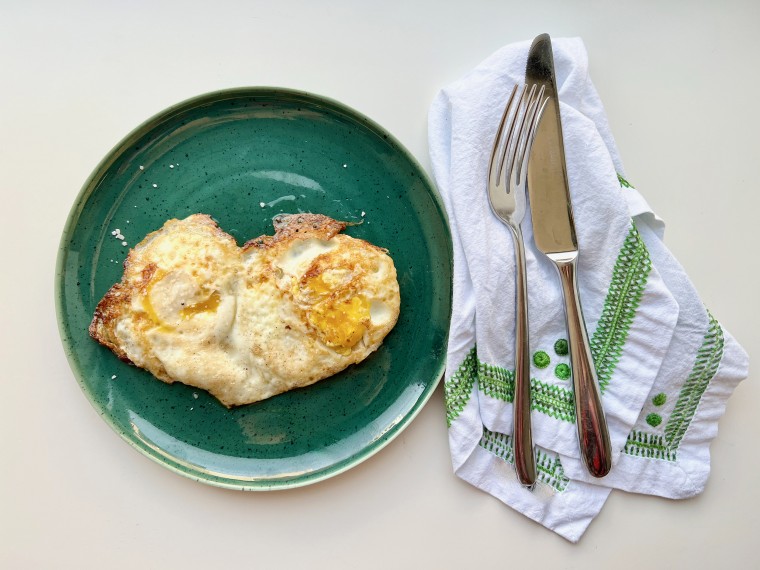
Source: https://www.today.com/recipes/how-make-perfect-over-easy-egg-t243536
0 Response to "The Best Way to Make Over Easy Eggs"
Post a Comment